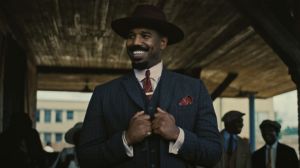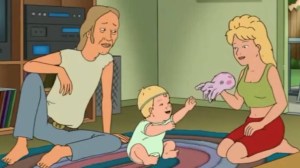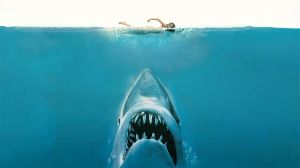
After almost five years on the title beginning with the very first issue at the start of the New 52, Scott Snyder and Greg Capullo are leaving Batman. This Wednesday Batman #51 will be released marking the end of their already iconic stint on the title. From “The Court of Owls” to “Zero Year” to “Superheavy”, their epic stories have set the tone for Batman comics since 2011 and a high bar for other DC Comics to aspire to.
Videos by ComicBook.com
Both Snyder and Capullo sat down with ComicBook.Com correspondent Chase Magnett for the very last interview of their time on Batman this weekend. Together they discussed the legacy of the series, the impact it has had on both fans and the creative team, and what Batman means to a pair of men who have had their lives changed by the character.
Your run on Batman has really been defined by epic 6 to 12 issue stories with very high stakes. Batman #51 stands out because it’s the opposite of that, working as a relatively quiet one-shot. What was it like switching gears to provide this ending for such an impressive run on Batman?
Snyder: My roots are in short stories, so I actually love doing one-shots and shorter stuff. It’s that Batman, the character and the book itself, demand you swing for the fences. As much as I love those shorter pieces and try to do them now and then, I feel like the ideas I’ve had for the character demanded more room. I would go for these big, blockbuster 6 or 10 or 12 issue arcs.
At heart, I love these kinds of stories. It was a joy to get to do it and you get to flex different muscles. One of the things we’ve tried to do every time was something you wouldn’t have expected from us in one way or another. Hopefully this is a good note to end on in that regard. It’s something you don’t see from the two of us very often, and it gives us a chance to say thank you in a different way.
Greg, this issue also packs a lot into a little space and shows you touching on a lot of things that you may not be able to revisit for a while. What was your approach going into this story and ending on a high note?
Capullo: Scott and I are doing a lot of nods to everything we had done previously. I didn’t change anything or any of my work process. I do what I do. I follow my instincts and I draw what I think is the right thing to draw and I put my time in to hit the deadline. The thing that was different though was that it was great to revisit all of these things I had done before, like “The Court of Owls” and the big scene in Arkham,.
Scott did it for the fans, but he also did it for me, I think, and for himself. We wanted to go through everything that we had done and hit all of these high moments that were so much fun and stood out in our minds. That was great because it countered some of the sadness knowing that this was the last issue of Batman.
There’s a sense of melancholy to the issue as you’re working to both set things up for the next team of creators to step in, but also remembering everything you’ve added to this character and world. What have been some of your favorite things to reflect on in this issue about your work on Batman?
Snyder: The funny thing for me is there’s a separate history to the book. Fans experience it one way in that they pick up an issue or arc and read through it. For us it’s all about the creative relationships, the back-and-forth, the meetings at cons and talking about a story idea, the fighting with DC to get an idea through. In addition to all of the Easter eggs in these stories, there are personal Easter eggs to me that let’s me walk down memory lane. I get to see everything Greg and I have gone through together, and Danny [Miki], Jonathan [Glapion], and FCO [Plascencia].
Picking a favorite is hard because “The Court of Owls” will always have a very special place in my heart. It was the story I wrote when I was thinking, “If I only had one chance at Batman and had these guys with me…” That made it so more special to me and hopefully to them. In terms of different nods, “Zero Year” was the one where it was the hardest and it really caused me a lot of anxiety and depression because I was so nervous. Once I got into it, it was the one that really redefined my sense of ownership, and for us as a team, on the character. It gave me a sense of how to do him for now and that I wanted him to be a different sort of Batman than had come before. It was much more about inspiring people to be brave in the face of modern, contemporary sorts of issues, as opposed to the ones I grew up with. The Red Hood helmet, the purple cape, the Riddler, all of that stuff brought back a lot of really fun memories.

Capullo: For me, all of that stuff was great fun. I got into this as a young kid, absolutely loving it, and wanting to do the big, cool superhero stuff. But for me, I really, really love the character moments, getting to make characters act. The scene with Al and Bruce in the caves, and Al examining Bruce’s back, that was my favorite to draw. It was so personally sad for me because Scott in the previous arc had Al basically daydreaming about the life he could have had, loving that life with a wife and children, getting to turn grey and be happy. Now he actually got to witness it; it wasn’t a dream, it was there, it was happening!
So you think about it from a father’s perspective and think there would be no greater joy than to watch your son enjoy his life like this. Then you see Al look at Bruce’s back. Bruce was aware that he was Batman before, but he hasn’t really lived it. Al lived every moment of it, every stitch, every bit of shrapnel plucked out, all of it. When he looks at that pristine back Bruce now has, all he’s seeing is the stitches he’s going to have to put in it and the stuff he’s going to have to pry out of there. That’s you looking at your kid and knowing this is his fate. That was the most meaningful scene and the one I really put my heart and soul into.
I think that really shows in the issue too. Looking at all of these stories you’re talking about from “The Court of Owls” to “Zero Year”, you’ve done a lot over the past five years in one of the longest runs on Batman ever. Now that you’re getting to step away from it, is there something you hope to leave behind as your own legacy with the character?
Snyder: We’re so close to it still that I still feel very myopic about it, like my face is still pressed right against it. It’s hard to even process that. What I really hope we’ve done is make Batman a figure that could inspire my kids to be braver when it comes to the things facing them. We’ve tried to have villains and monsters that were nightmarish extensions of contemporary worries and fears, whether it was personal about being a dad in “Death of the Family” or much bigger issues like what the Red Hood gang represents in “Zero Year”. Instead of being a figure of intimidation driven by personal demons in a pathological way, which I always loved stories with that version of him, we tried to spin him to be a bit brighter and a bit more human. Batman should inspire someone that even when their personal problems seem insurmountable, you can fight your way out and make baby steps. If I can fight this huge kaiju destroying your city, then you can too.
Greg, same question for you, is there something you hope to leave as a legacy with this run on Batman?
Capullo: As with everything that you do, you do the best you can and hope people like it and don’t hate it. The fact that fans have said so many kind things and throw the word legacy out at us, I just hope they’ll continue to love it. It’s the ultimate reward and honor and flattery to be mentioned in the same breath as the great writers and artists and creators that came before us. I hope it stands the test of time. I hope it is true that Scott and I did create a legacy, because what a great story that would be for your grandkids when you get old.
You’ve both mentioned how personal your work on Batman has been in the last ten minutes, and how much of yourselves have gone into it. Are you looking forward to getting a little bit of distance to reflect on it?
Capullo: I just started putting art for sale. So much time has passed and I’m going through “The Court of Owls” pages and it has been five years. I don’t remember it; it’s almost like a different artist did it. Now I can look back and appreciate the power of that story. All of the fans have been saying how great it is since day one, and you say “Thank you. Thank you very much.” But you don’t really soak that in; it’s your job. Now I’m looking back at all of these different scenes I had forgotten about and think, “Wow. That really is a powerful scene.” It’s really cool to look back with some distance because you can appreciate it from a fan’s perspective because it’s almost like somebody else did it.
Snyder: I like looking back, forgetting I did something, and going, “Oh yeah, that was good.” Then I start to get worried that I used to be better.
Even looking back with a fan’s perspective, it’s really apparent how much your careers and work have evolved. Reflecting on the past five years on Batman are their certain takeaways or key lessons learned that stand out to you?
Capullo: I don’t know if it’s affected me as an artist and how I approach my work. I do what I was trained to do when I was trying to get work. The only thing that Scott and I might agree on, because Scott has said it before, is that when you’re taking on something as big and entrenched in the public’s heart as Batman there is a fear factor where you worry about ruining it. You might start to listen to the chatter that’s on an Internet forum and that will be your undoing, if you do that. The lesson I learned was to avoid that kind of social media because it will muck you up. You have to approach it the way you believe it should be approached. Scott has to write the stories that matter to him and that he believes are powerful in his own life. I have to draw it in the way I envision it and feel about those characters. The only thing you can do is do the best you can and hope for the best. You really can’t pay attention to every little bump in the road that might come your way on the ride; you just have to keep riding.
Snyder: I couldn’t agree more. Batman, like Greg said, loomed so large and is so terrifying. For me having up and downs with anxiety and depression, there were those moments where I was terrified to begin. Greg always pushed me to do stories that mattered to me and were personal, even if we were worried we would jump the shark on them. The fact that we ran the book that way and the fans supported us made me realize how generous the reading community is and how true they are and how supportive they are when you try to do something you care about.
My belief is that if you’re doing something that matters to you and makes you vulnerable, they’ll support you, even if it isn’t perfect. That means a lot to have a community that’s that supportive and enthusiastic for creators. I think that’s why there’s so much support for different indie stuff and the projects both Greg and I have on the side, as well as for Batman. The creative community seems to really support when you go out there and try to do something that is yours and different. There’s no way to say thank you enough to them.

I think one of the lessons learned from an outside perspective is that the shared passion of this creative team and your support of one another has helped to create a much more ambitious and quality comic book. How do you help foster that sort of positive creative environment in a collaborative medium?
Capullo: I assembled the art team, working with guys I know and trust and are talented. They’re guys I believe can be differentiated from the rest of the pack. I mean, what’s the point in having a bunch of guys who look like a bunch of other guys? From day one it’s, how do I assemble a team who is unique and will create something that’s of good quality?
The other thing that I’ve told to editors and Scott along the way, who would try to get in the kitchen sometimes and go “What if we did it this way? Or what about that way?”, I said you can’t be like that. What the other guys might turn in might not be your absolute favorite every single time, but it’s important to give every player on that team the space to do what you hired them to do. You hired them because you like them, so let them do what you like. Everyone needs their space. Part of our success together is nobody really got in anybody’s way and stepped on their toes and elbowed them and told them how to do their job. We trusted each other and we know that everybody shared the same passion towards making the best product. Everybody should learn that lesson. Trust your players. You’re playing on the team together for a reason, so let them do their job.
Snyder: I’ve never learned more creatively than I have from this guy here. He made me a better writer. The incredible talent of the art team with guys like FCO and Jonathan and Danny in not just bringing the story to life, but making it better on every level made me realize that you have to let things go. You have to say here’s the story, here’s the emotional framework of the scene, here’s what it’s about, now make it yours. That has been the joy of collaborating with these guys. I’ll hand something in that I care about and believe it’s the best I can do, then it’ll come back and it’ll be ten times better for the way they imagine it.
It was a real crash course for me. Greg had a really long career before he ever came on Batman and I had been writing comics just over a year or so. Even though I had worked with different collaborators, I still came in with a different sense of how important it was to maintain your territory and do what you were hired to do. I feel like I came out of it a better creator, a better person, and all of it. It has been a privilege and an honor to not just work on Batman, but knowing Greg and having a creative partner for life. It’s a book I can be really proud of because it’s a testament to our relationship as creators and to our fans who got to grow up with us. They saw us not get along and then get to be as close as we are.
We’re already running over on time, but I have one last question for you both. After having put so much of yourself into this series and character, both personally and professionally: What does Batman mean to you?
Capullo: To me, and I think this is the success of Batman, we all have horrible things and tragedies that happen to us. A lot of people will point to those negative things in their life as an excuse to why they’re a failure in other parts of their life. You have a choice every time and there are two roads you can choose: to be a victor or a victim. Bruce Wayne had the most horrific tragedy happen to him as a young boy, and he could have easily been the guy who gets strung out on drugs and alcohol or turns to criminal activity, whatever. It could have been very bad for him, but he took that and he chose to be a victor in that situation. I think that’s the message that underlies Batman, to have that indomitable spirit and to never give up ever and to push for victory even when all of the odds are stacked against you. That’s what he symbolizes for me.
Snyder: Honestly, I couldn’t have said it any better. Batman says that we’re all in it together. He gets out there and fights these giant, nightmarish projections of the things we’re afraid of in real life and says, “If I can do this and make my life better, if I can take this event that was all about meaningless violence and turn it into an engine of meaning to make my life matter to other people, then you should get out and make your life matter.” No matter what you’re facing, no matter what the odds seem like, whether it’s a personal demon or an international issue, get out there and be Batman.
It’s an inspiring message to me. I grew up with a Batman that was very dark, but he’s not that dark. In other ways he’s incredibly bright and I love him for that. That’s what he means to me. The weird thing is I think about it sometimes and Batman really has helped me through some very difficult times. As a child with books like The Dark Knight Returns he taught me he could inspire something in a context that was very realistic. Now as an adult he has helped me work through issues that have given me a lot of trouble in life, on this book with Greg as a partner. He has always been a hero that says, “Put me in coach. I’ll fight that thing or I’ll show you how not to be afraid of it.” That’s what he means to me.
Chase Magnett is a freelance journalist, critic, and editor working with comics, film, and television. He has been hooked on comics since he picked an issue of Suicide Squad out of a back issue bin fifteen years ago. When Chase is not working with comics in some way he spends his time rooting for the San Francisco 49ers and grilling. He currently contributes to ComicBook.com and other outlets.









